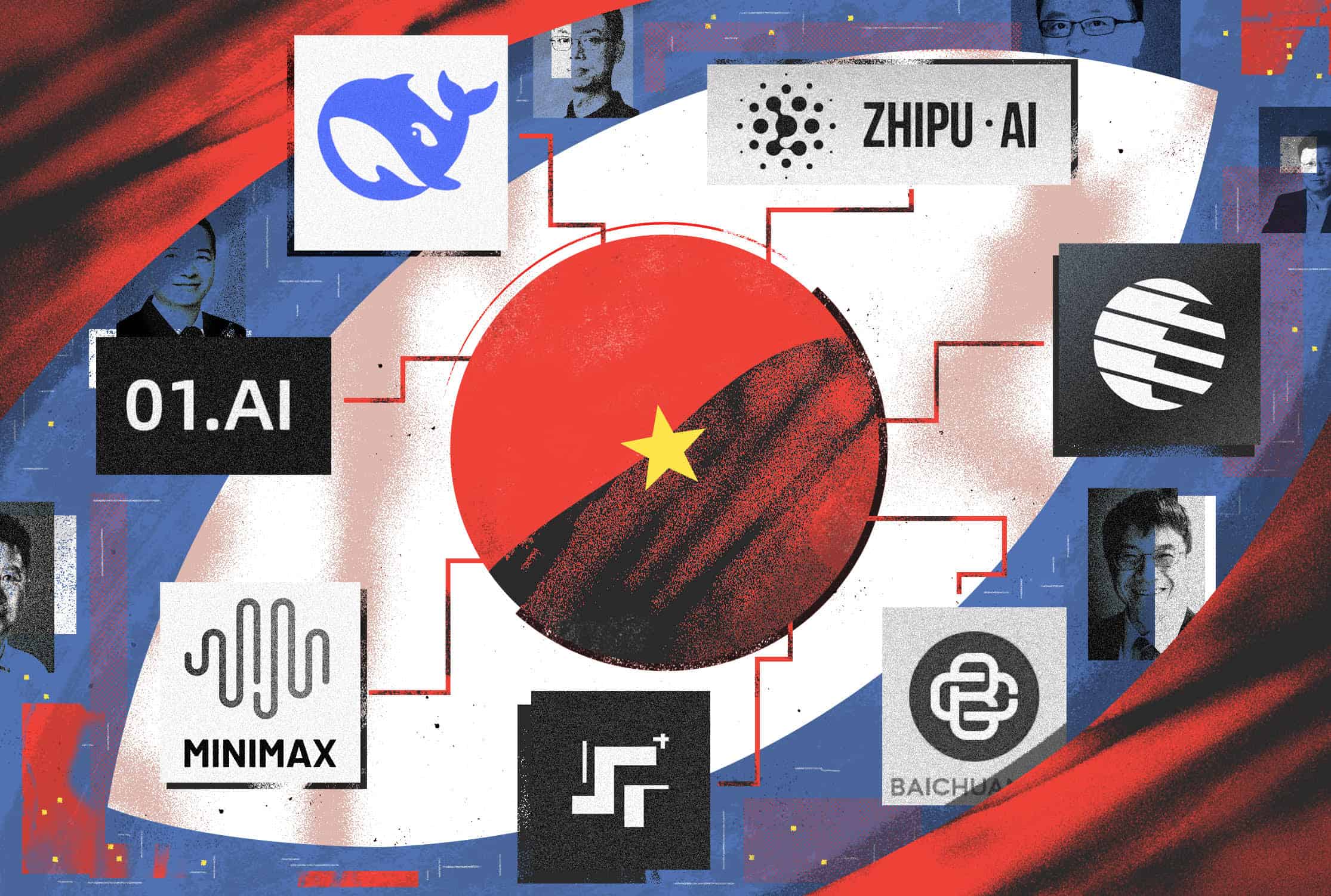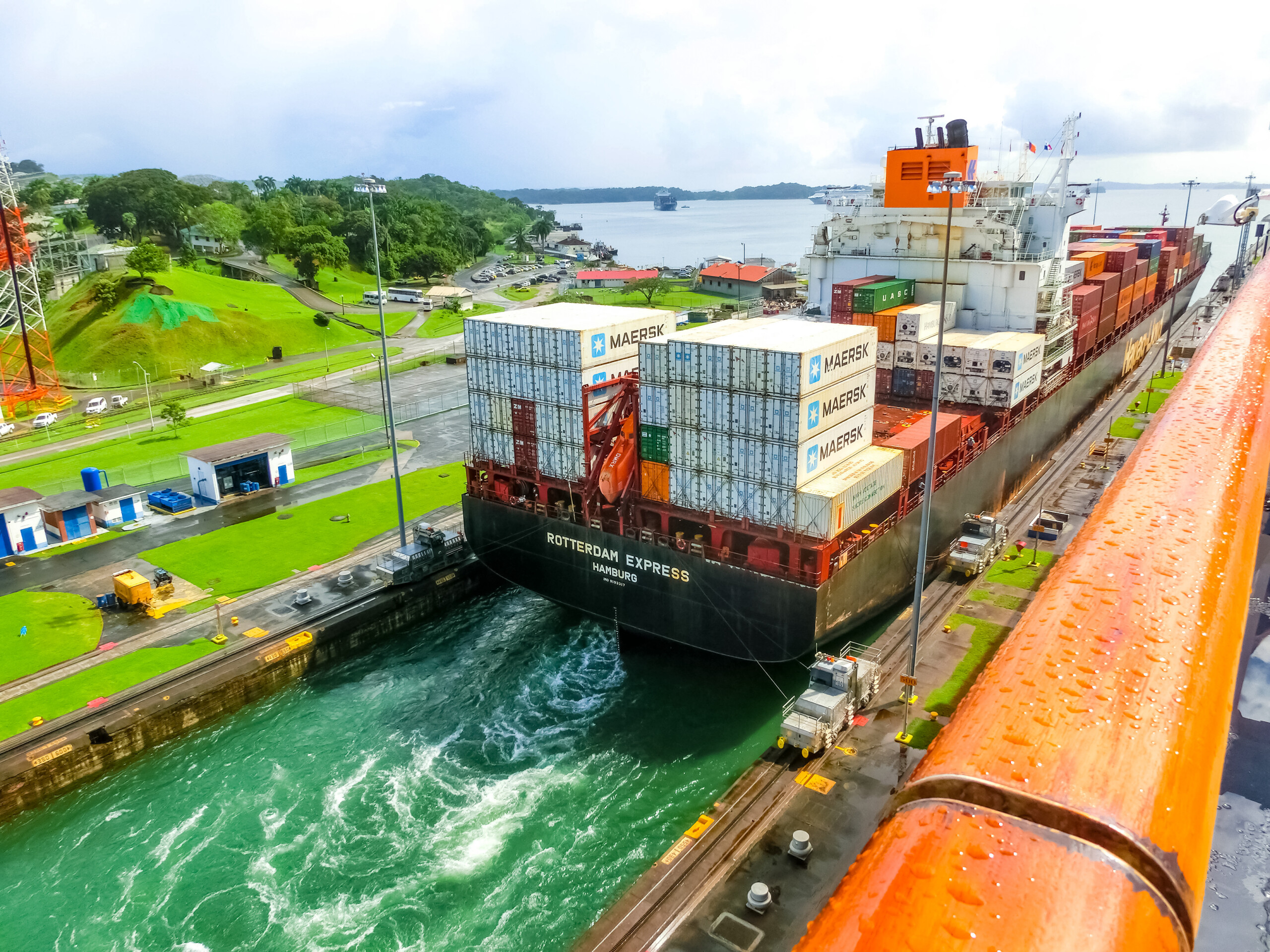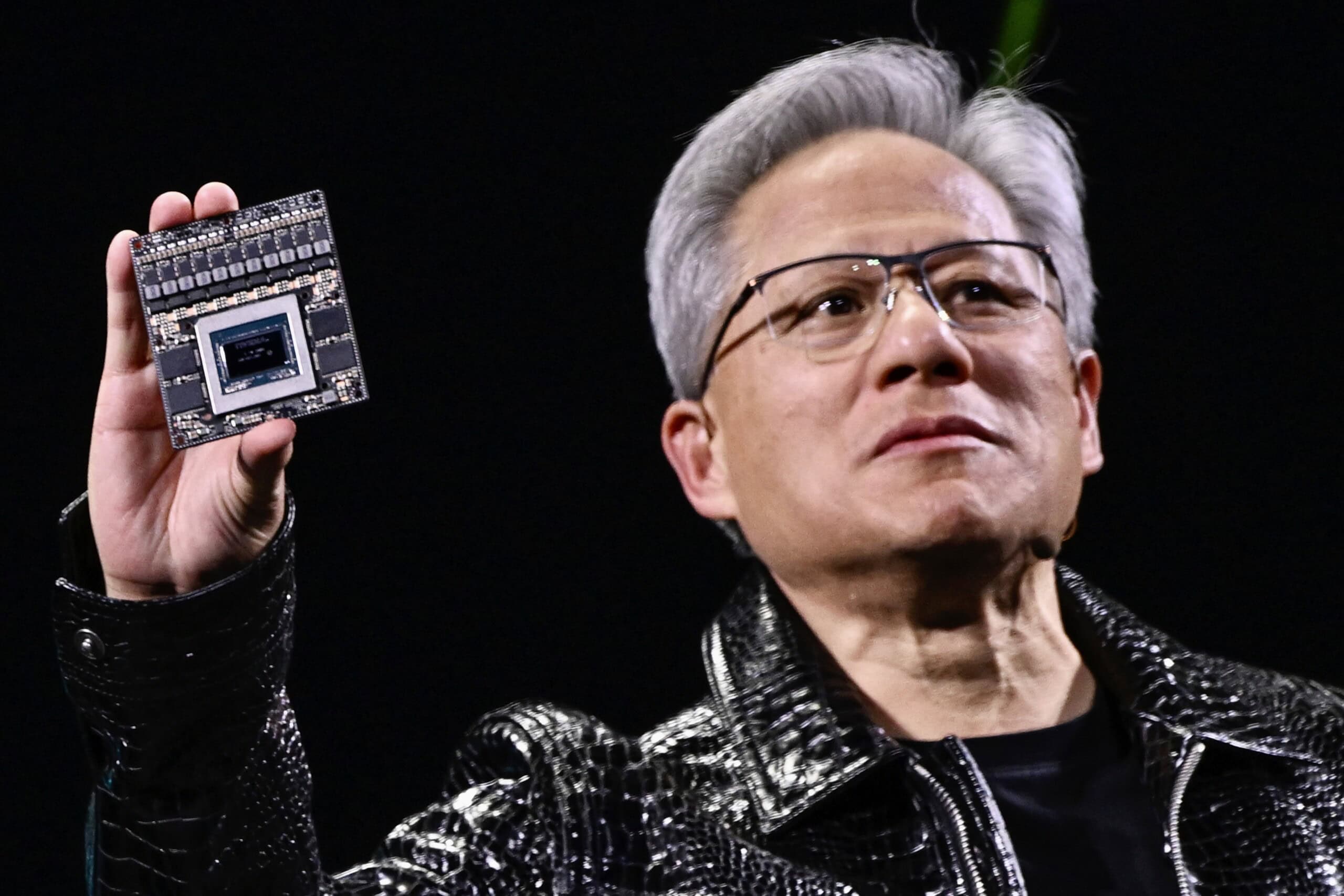Patrick Jenevein is a businessman from Texas whose long experience working in the energy sector in China forms the backdrop to his new book, Dancing with the Dragon. In it, he recounts how his company, Tang Energy, started investing in the gas industry in Xinjiang thirty years ago, before moving on to larger projects, particularly in the wind-power industry. That experience, which led Jenevein and his company into a long-running battle with a major state-owned defense company, forms the core of the book. We started a recent conversation by talking about why Jenevein first entered China: the following is an edited transcript of that interview.
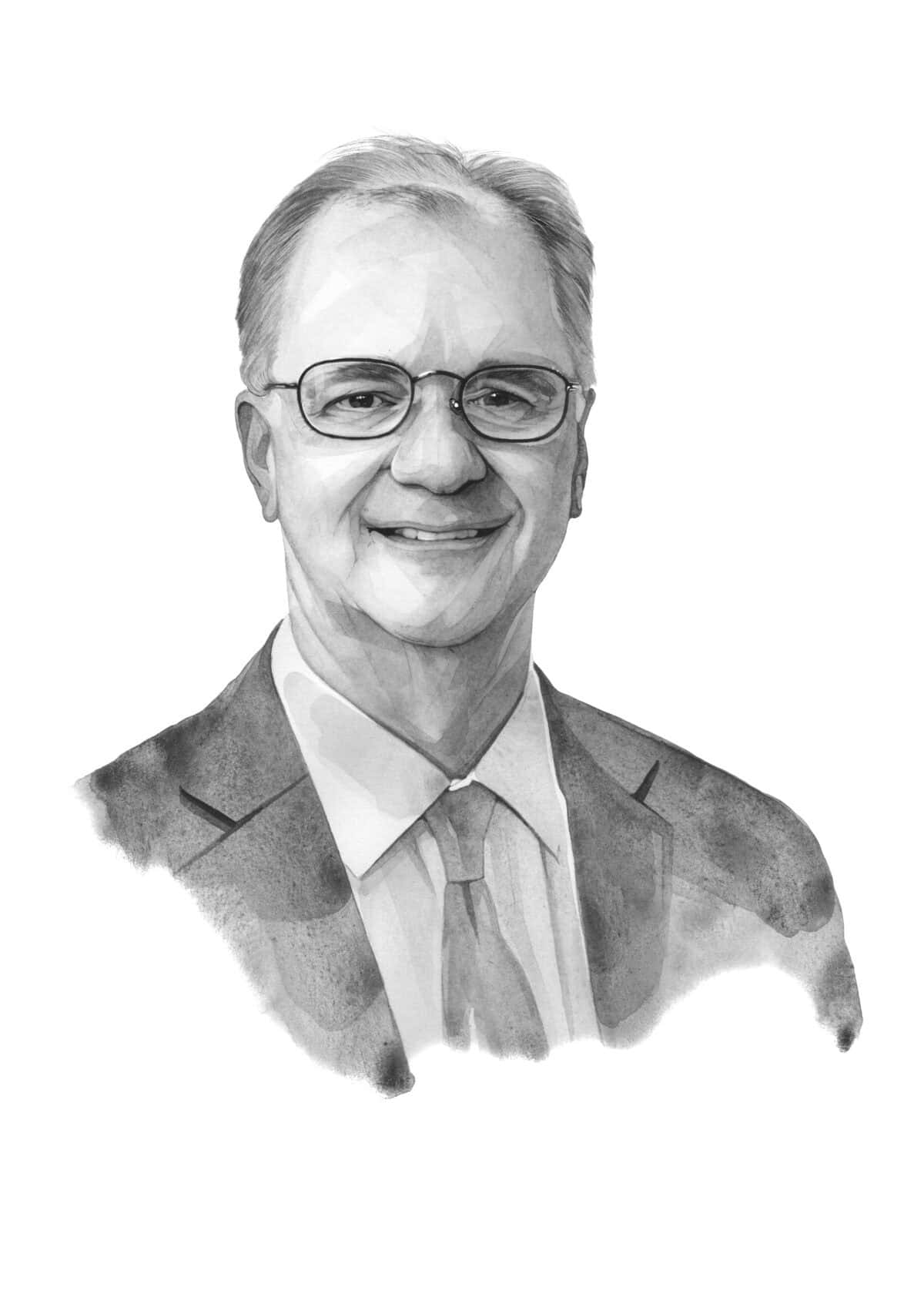
Illustration by Kate Copeland
Q: You first started doing business in China in the mid 1990s, in the energy sector. What was the opportunity you saw at that time?
A: My first trip to China was in 1995. I went because we knew how to process natural gas, turning it into a liquid form which helps you move and use very clean fuels — especially useful when the alternative some people used then in Western China was farm animal dung. When we later had the chance to generate electricity using natural gas, we pivoted to that, because in Texas, we had made more money doing that than we had just by processing it.
Throughout our time in China there were several pivots. We pivoted from natural gas processing, to natural gas-fired power generation, and then to building bigger power plants. We put a power plant at the Western end of the Great Wall. We put a GE jet engine on the ground, and connected a generator to it, fueled it with natural gas and that started to get us into big plants. But as soon as you put a jet engine, or what some people call a combustion turbine, on the ground, you wind up working with AVIC — the Aviation Industry Corporation of China — whether you plan to or not.

We did well with natural gas and power generation. And then a company called Xinjiang Wind Energy Company found us and said, ‘hey, would you build a gas fire power plant on our wind farms, so that we can deliver electricity to the grid reliably, not just when the wind is blowing.’ That is a great idea conceptually, but contractual frameworks make it very difficult to make the idea work financially. Imagine if the wind turbine falls on part of the power plant. Whose fault is it? And who pays for the repairs?
It turned out that with every pivot we burrowed deeper into the Communist Party; and as we elevated the size of our plants or projects, so our importance to the Party rose. By the end, when we were making blades for wind turbines, we had the second biggest blade maker in the world, worth $1.8 billion.
| BIO AT A GLANCE | |
|---|---|
| AGE | 66 |
| BIRTHPLACE | New Orleans, Louisiana, USA |
| CURRENT POSITION | CEO of Pointe Bello, a strategy development and execution firm |
The perspectives that you gain, having to negotiate with and operate businesses with Communist Party authorities, give people like me a history that few in Washington, DC have. There are many bright people in Washington, and other parts of the world, that analyze and track Communist Party developments and personnel changes. But few of them have had the opportunity to understand the Party inside out, or from the bottom up.
Why did you think of doing business in China in the first place, back in the 1990s?
I grew up in Texas, at a time when people spoke about Red China, and Taiwan was known as Formosa. I had no expectation of ever going to China. But as my career developed, we got really good at processing natural gas, which acts the same wherever it is — regardless of politics and geography mostly.

China offered frontier type opportunities. And it’s fun to be on a frontier, where you can work hard — and if you get lucky you can make a lot of money, doing good things for lots of people. When we were bringing electricity to Chinese villages for the first time, that was deeply rewarding. There’s a visceral satisfaction that goes along with that, and you’re making money too. It’s a wonderful combination.
Parts of western China look like parts of West Texas, too. The cars were a little bit different, people’s dress was different, they spoke a different language. But I felt at home in a lot of ways.
And in those early days, did you feel what you were trying to do was welcomed broadly by the Chinese authorities?
Very much. It was needed.
Let me back up a little bit. Mao said the legitimacy of the party comes from the barrel of a gun. Deng Xiaoping said we need to change that, and look to earn legitimacy from actually raising the quality of life for Chinese people.
We’re always subordinate to the Han Chinese, and we didn’t mind that role, we were just trying to get things done. So we helped make business work for AVIC with other Chinese companies and with Western companies.
Most of my time in China was against that background, where the party felt like it needed to raise people’s standards of living. The way you do that is by pushing authority and responsibility to individuals, to the frontiers, to entrepreneurs, to innovation. That environment was very encouraging to interactions with people around the world. Then Xi Jinping came to power, and he has turned Deng’s idea on its head, and reverted to Mao’s idea that the party has legitimacy because it controls the gun.

But initially we were very welcome. People were trying to get rich, and it was easy to say, we want to get rich too. That’s how we can build relationships that have a foundation that will last. We met lots of people that were willing to work really hard.
When did the idea of cooperating with AVIC in wind energy come about?
We first contacted AVIC when we were building a gas fired power plant at the western end of the Great Wall. We commissioned that plant on October 1st, 1999, the 50th anniversary of the Communist Party [taking control in China] founding the People’s Republic of China.
But then, under NATO auspices, U.S. bombs hit the Chinese embassy in Belgrade [in 1999], and then an American and a Chinese warplane collided over Hainan [on April 1st 2001]. We had had meetings planned [with AVIC] that week that were going to be substantive. But once that collision happened, because the meeting fundamentally depended on getting international project finance, we weren’t going to have a chance of getting funds: Acts of war and project finance don’t match. We were toast for funding, and we didn’t know how long.
| MISCELLANEA | |
|---|---|
| BOOK REC | Dancing with the Dragon |
| MOST ADMIRED | As the years roll on, my admiration grows for a widening roster of heroes across all arts — light, grey and dark. So too my disapprobation for villains deepens. |
But still, that day or the next we went to lunch early and started drinking beer. Some time in the afternoon, somebody said let’s make blades for wind turbines instead. That was another big pivot. China’s strengths at the time were in manufacturing: Part of AVIC’s strengths in particular were in building airfoils for airplanes, for helicopter blades and industrial fans. A blade for wind turbines is just another airfoil.
And so it made sense — we could play to each other’s strengths. We knew how to talk to Western companies, and other companies in China. AVIC has a hard time talking to some Chinese companies that are not in the military sector. They were so used to being in parallel silos of equal height with peers that didn’t want to talk to each other, because doing that would force both to say ‘I’m the superior’ or ‘I’m the subordinate’. We could be the crazy foreigner in between that they could squash like a bug if they needed to: We’re always subordinate to the Han Chinese, and we didn’t mind that role, we were just trying to get things done. So we helped make business work for AVIC with other Chinese companies and with Western companies.

As I understand it, the idea of the eventual joint venture in the United States was to develop wind farms in order to create a market for the wind turbines that your company was also producing with AVIC. Is that right?
Mostly right. In China we had a joint venture that only made the wind turbine blades. GE, Siemens and others made turbines: All we were doing was putting the blades on their wind turbines. That was our joint venture in China, called HT Blade, the one that was going to go public at a value of $1.8 billion.
We also started a company in Texas called Soaring Wind, to be able to develop wind farms around the world. We would go to GE, for example, and say we wanted to buy $100 million worth of their turbines for our wind farm in Nebraska; but we wanted them to put HT Blade-made blades on them. That was going to help HT Blade’s eventual IPO be more successful, because we would have a broader and deeper geographical market.

So there were actually two different joint ventures — the one that just made blades for wind turbines, based in Baoding, China; and then the one in Texas that was developing wind farms around the world. They were both with AVIC.
So, what went wrong?
What went wrong? Xi Jinping ascended to power and the Xi Jinping Communist Party wants nothing to do with foreigners making money. That’s it in a nutshell. The way that expressed itself — that gets more complicated.
The first thing that happened as Xi ascended to power was that Communist Party members froze. They were afraid to make decisions and take action. We saw that in board meetings.

Second, party members started to take everything back to the Communist Party that they could. If they could steal our interest in the blade company, they would. They stole cash from us: One of their subordinate units stole $8 million from us. Once we found out about it, we said they had stolen the cash and AVIC should put it back in. But they didn’t. And then we even got a tax bill from the Chinese tax authority, for the amount of money that the AVIC subsidiary had stolen.
So they started effectively pushing us out of the blade-manufacturing company in China. In the United States, they hired our general manager from the Soaring Wind joint venture. They diverted financing. They even stole a wind farm from us.
And they also set up a rival company of their own, right?
Not only was it a rival company: The name of our company was Soaring Wind, and they named their company Ascendant. You can say that they even stole our name.
What do you think was their motivation?
Xi Jinping created an environment that drove a lot of the action. Part of it goes back to the Confucian ideology where they, the Communist Party, were telling their people that they didn’t need to be subordinate to anyone. They could take what they wanted, and they should. If you say you don’t need to be subordinated to anybody, in a Confucian world, that means you’re superior.
So they made an intellectual leap that has put them into a really odd position that they cannot sustain. I think a lot of Chinese are now seeing that Xi Jinping’s idea for the People’s Republic of China and its governance of the people there being superior is untenable in the long run.
A lot of the book is about the legal ramifications of the situation with AVIC. Can you just briefly outline how that developed, and the outcome that eventually you’ve come to?
We had been holding up our end of the bargain. We had committed to bringing wind farm opportunities to the Texas joint venture, Soaring Wind and we kept doing so. We spent a lot of money doing that and AVIC just never came through on their part of the bargain.
And then they started stealing stuff from us. We told them that was wrong and they needed to correct it. And at some point you risk running out of time: you meet your statute of limitations where you can’t pursue any remedy. Right before that hit us we initiated a dispute resolution under the Soaring Wind JV agreement.

Under our agreement, dispute resolution began with arbitration in Dallas, Texas. We went through that and won. We then had to go to the U.S. District Court to confirm the arbitration, to make sure that AVIC would pay. They took our confirmation victory to the Fifth Circuit Court of Appeals, twice. We won there. Then AVIC took the case all the way to the Supreme Court of the United States; and the Supreme Court denied AVIC’s petition to hear the case.
We had to prove that the federal courts in Texas were the proper jurisdiction. And we proved that. We had to prove there was a breach of the contract. We proved that. We had to prove that there were damages we had suffered. We proved that. We thought that we should have gotten a much bigger number, but we got a number.
The really important thing that we wanted was an alter ego ruling that established that the AVIC subordinate’s activity in the United States made the parent, all the way to Beijing, financially responsible. We established this long alter ego chain that linked financial responsibility for bad behavior from a subordinate all the way to headquarters in Beijing. That was huge. If we hadn’t done that, we still would be looking for money.
As it is, have you recovered money from AVIC?
Yes, we recovered $24 million dollars in Dallas in April 2022.
Did you have any qualms about going into business with what is clearly a politically important company in China in the first place?
Absolutely. First, AVIC is huge. In 2023, I think they were the defense contractor with the most revenue in the world. And we were a little bitty private company in Texas. Just the size distinction was scary. So we tried to act appropriately by making sure that we kept all the IP close to us that we had to protect.
Still, if you’re engaging with a company in China, you’re exposing part of yourself, part of your balance sheet to negative outcomes. Early on we were doing well and they were doing well. That dynamic builds trust, it creates jobs, it builds wealth. But that was happening under the Deng Xiaoping characterization of communism. The Mao and Xi Jinping characterization of Communism gets back to the barrel of a gun.
The people that were working inside AVIC were subject to that imperialist force, and as the imperialist force grew in strength their ability to act shrunk. Their ability to make decisions, their ability to innovate, their ability to talk freely, to even think freely, declined.
As for any state secrets or intellectual property that were important for U.S. national defense, we didn’t have any. Even the blades that we made at HT Blade, while they were complex airfoils, that was all information that you could find on the Internet, or that you could access publicly if you just did the research.

We tried to do a lot of things to make sure that we protected our intellectual property. The deeper we worked with AVIC, the more I worried about it. But we assumed that GE and the U.S. government were going to protect their combustion turbine technologies. We didn’t have that technology, but we knew how important it is to have a jet engine that works reliably, not just to keep people safe on airplanes, which is the most important, but how important it is to have a power plant that operates reliably.
A lot of people date China’s more assertive posture to the period just after the global financial crisis. When did you personally, working on the ground in China, start to feel that the atmosphere was changing?
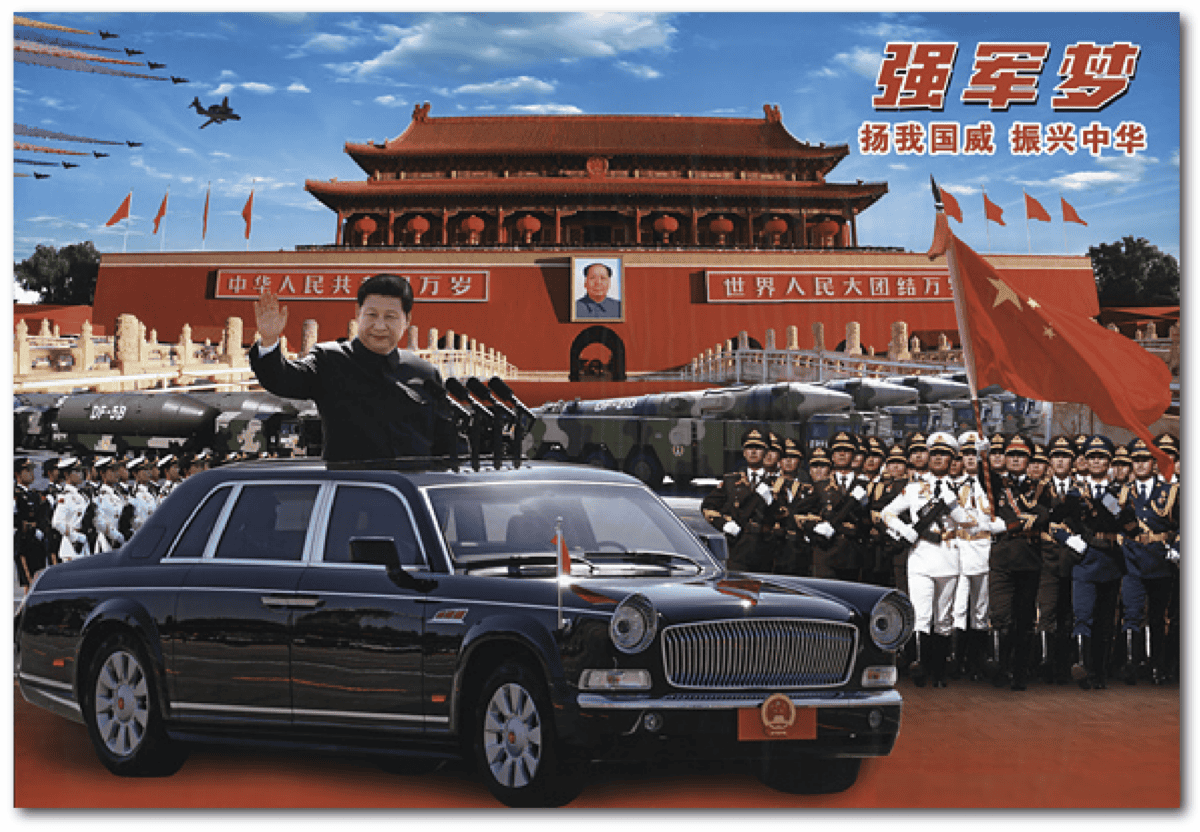
It was around that time, 2008 and afterwards. The financial crisis provided the Communist Party an excuse to change the narrative from the Deng idea of hide and bide, hiding your strengths and building them up over time.
Xi Jinping’s approach is to tell Chinese people how great they are. Everybody wants to think that their team is the winner. People are proud of their communities and their intellectual achievements and their military feats. And the Chinese are the same way. Xi Jinping figured out a way, which wasn’t too hard, to tap into Chinese pride.
But what made China really strong? I date that not to Deng’s Southern China tour, but to his policy of giving Chinese farmers a modicum of freedom to be able to do with their time and their farms what they wanted. Suddenly agricultural production expanded greatly. That lit a fire under the PRC economy. When Xi Jinping came around he started saying no, we don’t need the West; he started taking away that freedom to decide what to do with your resources and your time.
Patrick Jenevein on the ‘imbalances U.S. firms face when working with, and resolving disputes against, Chinese firms‘, January 26, 2017. Credit: C-SPAN
One of the points you make in the book is that ultimately you were caught in the middle of a clash between Western capitalism and the Chinese system, which you describe as a kind of imperialism. Could you just expand on that?
Countries around the world historically have used imperialism to allocate resources. The way to control the allocation of those assets was by occupation. And if you didn’t have them, you employed conquest. If you had to oppress the local people, you oppressed them.
After World War II the Western Powers generally decided, to hell with imperialism. Let’s allocate resources through a system of laws. That’s what I call capitalism. People throw lots of meanings around words like democracy. I’ve tried to narrow the use of such terms: imperialism is a system to allocate resources by occupation. Capitalism is an attempt to allocate resources through a system of laws. And systems of laws get fewer people killed than imperialist systems.

This touches on Graham Allison’s idea of the Thucydides trap. He says that China is a rising power and the United States is the declining power. I think he’s flat out wrong. He’s absolutely right to worry about war. But to say that the U.S. is a shrinking or declining power and the Chinese is a rising power is only a short term phenomenon.
Under capitalism, if you’re going to allocate resources based on laws, economic strength matters. It matters even more than under imperialism.
And the best way to drive economic strength is through a democratic approach to governing. You push as much authority to people and responsibility to people as you can. Those economies do better than the economies that are centrally planned, like China’s or Russia’s.

How did that manifest itself to you in your experiences in China?
Early on, Deng had said to get rich is glorious, and is going to be good for China, but we’re going to have unevenness, so get used to it. Even though there will be a disparity in wealth creation, creating wealth for China is a good thing.
And so here we were, bringing the opportunity to create wealth. [In our Xinjiang project] we were using natural gas that was being flared, or just vented to the atmosphere, reducing pollution. If you could burn natural gas in your home rather than dung, it’s a much more pleasant and safer home to be in. And then if you can also use natural gas to generate electricity, the exhaust was cleaner than the air a lot of Chinese could breathe in the cities they worked in.

So we were doing good things for the people in China, and making money doing it. That was part of what Deng wanted to happen. When Chinese people worked with us, they saw that we were helping them improve their communities and as partners, we were making money. Together we were creating jobs, firstly for construction workers that you have to have to build a power plant. After that, you’ve got more sophisticated jobs that require learning how to operate complex equipment. So we were creating jobs that people wanted to have.
That all started to change after the financial crisis.
The clash of ideologies matters because one ideology is superior to another. The ideology that uses law, rather than force and power, to allocate resources is better for people. Now, no system is purely capitalistic or purely imperialistic. They all use different mixes. But the systems that lean more towards allocating resources through laws do better than those that allocate resources through force only.
And with your experience with AVIC, you felt ultimately, that you were being subjected to a kind of imperialism. Is that what you’re saying?
Xi Jinping visits AVIC in Jingdezhen City, October 11, 2023. Credit: CGTN
The people that were working inside AVIC were subject to that imperialist force, and as the imperialist force grew in strength their ability to act shrunk. Their ability to make decisions, their ability to innovate, their ability to talk freely, to even think freely, declined. And with that, and with that decline in individual opportunity for self-expression, so does the Chinese economy decline.
Looking back, is there anything you could have done about the long legal battles you faced over the years?

We did a good job of creating the framework that we needed to be able to protect our interests. First, we recognized that if we ever had to sue in China, we had already lost. Second, in the United States, we wanted legal provisions to cover any potential dispute. One of those was that dispute resolution would occur in Dallas. Being at home when you’re going through a legal fight is a lot better than having to travel halfway around the world. That would help us control our costs, and we also thought that having a dispute resolution in Dallas, would serve as another guardrail to keep AVIC from thinking that a suit would be easy for them to win.
For businesses going to China now, I would say I understand the allure of a market with 1.4 billion people. But you need confidence in having laws respected. Under Xi Jinping’s totalitarian regime, contracts in the PRC are interpreted consistently in favor of the Communist Party. If you think you can avoid any possible dispute with the Communist Party, good luck. But don’t expect to be able to avoid disputes. Instead, expect theft.

The laws in China are meant to protect the party. The Communist Party wrote the constitution for the PRC, and the constitution enshrines the primacy of the party.
Here in the U.S., we start with the principle, “We the people.” Those three words essentially describe the objective of the rest of our legal system. We expect the system to protect people from political bullies, from monarchs or imperialists of any kind and other bullies as well. The Communist Party runs a system that is inverse to that.
Did you end up making money in China over the years?
We did make money in China over the years. We had several businesses that worked, and we were able to get money back from profits from China to Dallas.
…getting that relationship right is important for peace in the world. You want to fix Ukraine? Make the U.S.-China relationship better. It’s so important to get it right, not just for economic reasons.
And overall, it was a very good experience. Xi Jinping, or somebody else in the Communist Party, needs to remember that. The ‘Deng Xiaoping policy’ actually worked for China and the world. It made more people happy. It gave them cleaner air to breathe. It gave them better access to energy. It created jobs, it gave people wealth they hadn’t expected before.
Do you see China ever reverting to more of the spirit of the Deng Xiaoping years?
Then Chinese Premier Zhu Rongji discusses accession to the WTO during a press conference with then U.S. President Clinton, April 8, 1999. Credit: Clinton Library
I’m an optimist, and history supports optimism. Xi Jinping is a problem, but he will leave the scene someday. [Former Chinese premier] Zhu Rongji actually described it pretty well 20-30 years ago, basically saying that China needs guardrails, and accession to the WTO would provide guardrails the Communist Party needed to do good things for Chinese people. But then the WTO, led by the United States in a lot of ways, failed to insist that the guardrails be respected, repaired and maintained.
On the American side, there’s deep skepticism now with both major parties talking about decoupling from China. Would you counsel against that?
Things can change. People talk about decoupling, but even if you decouple, it takes a long time.

In the Western U.S.A. there are Redwood trees — gorgeous, magnificent, towering trees that are hundreds of feet tall and thousands of years old. The way they get nutrients is through their symbiotic relationship with fungi. Without the fungi, the redwoods die. I’m not saying the U.S. or China is the fungus or the Redwood, but if you decouple the same could happen in the U.S.-China relationship.
So we can’t simply decouple. Does that mean we shouldn’t speak vociferously about what we find important. No, it doesn’t. We must, but getting that relationship right is important for peace in the world. You want to fix Ukraine? Make the U.S.-China relationship better. It’s so important to get it right, not just for economic reasons.
And there’s a lot that we can do. One example could be for the U.S. to pass legislation that requires Americans that are investing in companies in China to deposit some money with the U.S. Treasury, in the event that Chinese companies use U.S. investor money to direct military capabilities against U.S. personnel. That would give the U.S. government a tool to raise the cost of investing in companies that develop People’s Liberation Army capabilities, and start to make other investments much more attractive.
But that’s a nuanced approach. People in DC are really good at studying the problem and the dynamics, but not used to working inside the system. They don’t think about that kind of idea. There may be better ideas out there: If there’s a better one, let’s go for it.
At one point in your book you recount how one of your friends or associates said, ‘you know Patrick, you could have just stayed in Texas, made money and had an easier life.’ Does any part of you look back now and think that was right?
Well, my friend’s right. It would’ve been a lot easier, and I could have made money.
But absolutely not, I wouldn’t do it differently. The people I got to meet, the differences I got to make, or help in making, are deeply meaningful to me. It puts meaning in my life that putting money in my bank account wouldn’t have done.
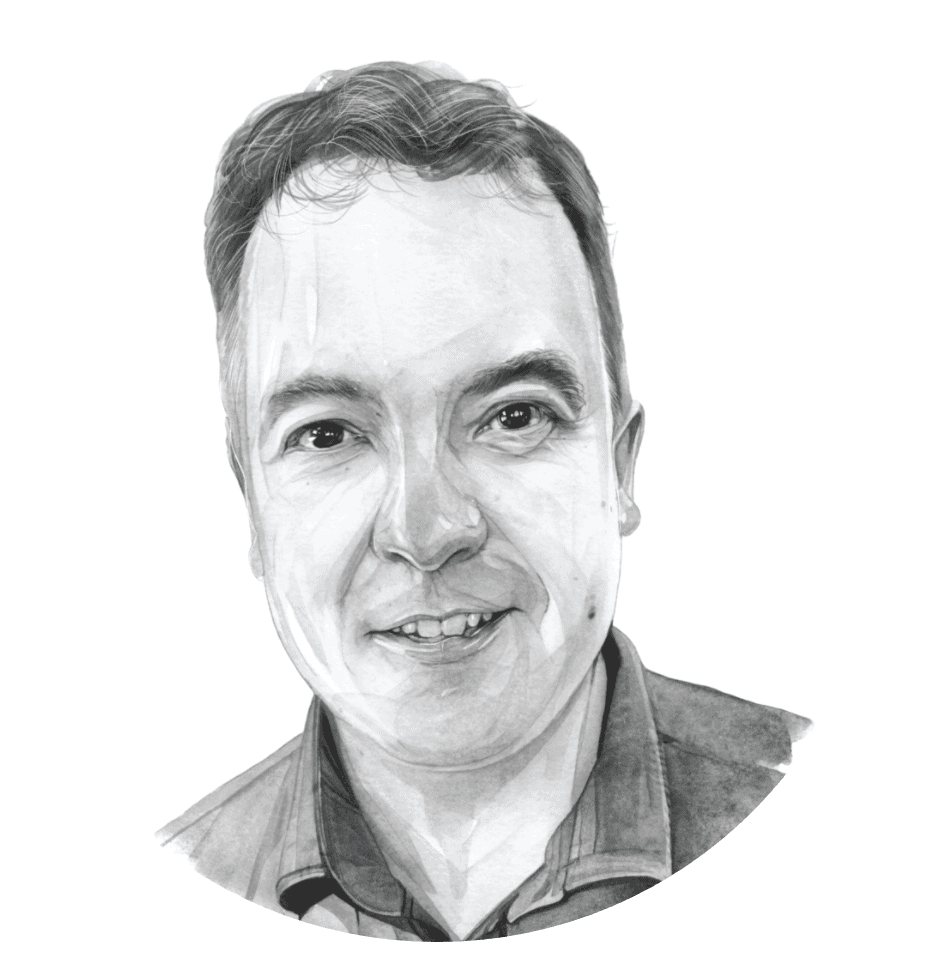
Andrew Peaple is a UK-based editor at The Wire. Previously, Andrew was a reporter and editor at The Wall Street Journal, including stints in Beijing from 2007 to 2010 and in Hong Kong from 2015 to 2019. Among other roles, Andrew was Asia editor for the Heard on the Street column, and the Asia markets editor. @andypeaps



